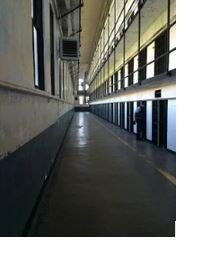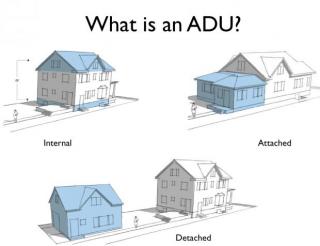 In response to the recent wave of hate incidents targeting Asian Americans, California lawmakers today approved $1.4 million in state funding to bolster the research and reporting work underway that is tracking this concerning trend. The Asian Pacific Islander Legislative Caucus (APILC) lauds the efforts of Assemblymember Phil Ting (D-San Francisco), Chair of the Assembly Budget Committee, who secured the appropriation as part of AB 85, a fiscal measure providing additional resources for California’s ongoing pandemic response.
In response to the recent wave of hate incidents targeting Asian Americans, California lawmakers today approved $1.4 million in state funding to bolster the research and reporting work underway that is tracking this concerning trend. The Asian Pacific Islander Legislative Caucus (APILC) lauds the efforts of Assemblymember Phil Ting (D-San Francisco), Chair of the Assembly Budget Committee, who secured the appropriation as part of AB 85, a fiscal measure providing additional resources for California’s ongoing pandemic response.
“The history of the Asian American Pacific Islander community in the United States has been punctuated by times of racism and hate including the Chinese Exclusion Act, the unjust incarceration of Japanese Americas in World War II, the murder of Vincent Chin, hate crimes against Sikhs after 9/11, and most recently, attacks and murder of API seniors incited by racist rhetoric about the COVID pandemic,’ said Dr. Richard Pan, Chair of the Asian Pacific Islander Legislative Caucus. “I am grateful that California will be funding data collection and research at UCLA to address racism and hate against the API community thanks to the leadership of Assembly Budget Committee Chair Phil Ting.”
Asian Americans have been wrongly blamed for the coronavirus and have increasingly been subjected to racist behavior. As cases escalated, the Asian Pacific Planning and Policy Council (A3PCON), Chinese for Affirmative Action (CAA) and the Asian American Studies Department of San Francisco State University launched the Stop AAPI Hate reporting website nearly a year ago. They have been tracking incidents of hate, violence, harassment, discrimination and child bullying against Asians and Pacific Islanders in California and the United States. In the last month, the Bay Area has particularly seen more and more attacks directed toward seniors – one 84-year-old man died as a result of his injuries.
“The rise in hate incidents against Asian Americans during the pandemic is alarming. But, we can’t solve a problem without knowing how big it is. New state funding allows the data gathering to continue, and the research will ultimately lead us to solutions that will make all communities safer,” said Ting.
Through 2020, more than 2,800 incidents have been logged. Of that, more than 1,200 occurred in California. It is widely believed the numbers are under-reported, as many victims distrust the government and are reluctant to come forward.
Nonetheless, tracking is still important and the new state funding ensures that continues. Data is critical for law enforcement and our community as they try to put a stop to the violence. The information gathered will help us move past this dark chapter in American history, spurring accountability and action to bring about justice and peace.
AB 85 awaits the Governor’s signature.
# # # # #
 In response to the recent wave of hate incidents targeting Asian Americans, California lawmakers today approved $1.4 million in state funding to bolster the research and reporting work underway that is tracking this concerning trend. The Asian Pacific Islander Legislative Caucus (APILC) lauds the efforts of Assemblymember Phil Ting (D-San Francisco), Chair of the Assembly Budget Committee, who secured the appropriation as part of AB 85, a fiscal measure providing additional resources for California’s ongoing pandemic response.
In response to the recent wave of hate incidents targeting Asian Americans, California lawmakers today approved $1.4 million in state funding to bolster the research and reporting work underway that is tracking this concerning trend. The Asian Pacific Islander Legislative Caucus (APILC) lauds the efforts of Assemblymember Phil Ting (D-San Francisco), Chair of the Assembly Budget Committee, who secured the appropriation as part of AB 85, a fiscal measure providing additional resources for California’s ongoing pandemic response. Millions of Californians face barriers to employment, housing and education because of old arrests and convictions, increasing the likelihood of recidivism. Assemblymember Phil Ting (D-San Francisco) has introduced AB 1308, legislation that would automatically clear criminal records for people already entitled to such treatment under current law. Many don’t go through the existing process because it’s burdensome and expensive.
Millions of Californians face barriers to employment, housing and education because of old arrests and convictions, increasing the likelihood of recidivism. Assemblymember Phil Ting (D-San Francisco) has introduced AB 1308, legislation that would automatically clear criminal records for people already entitled to such treatment under current law. Many don’t go through the existing process because it’s burdensome and expensive. With changes like lower fees, faster approvals and bans on parking and minimum lot size requirements, ADU permits in California jumped 11-fold from 2017-2019. However, an August 2020
With changes like lower fees, faster approvals and bans on parking and minimum lot size requirements, ADU permits in California jumped 11-fold from 2017-2019. However, an August 2020